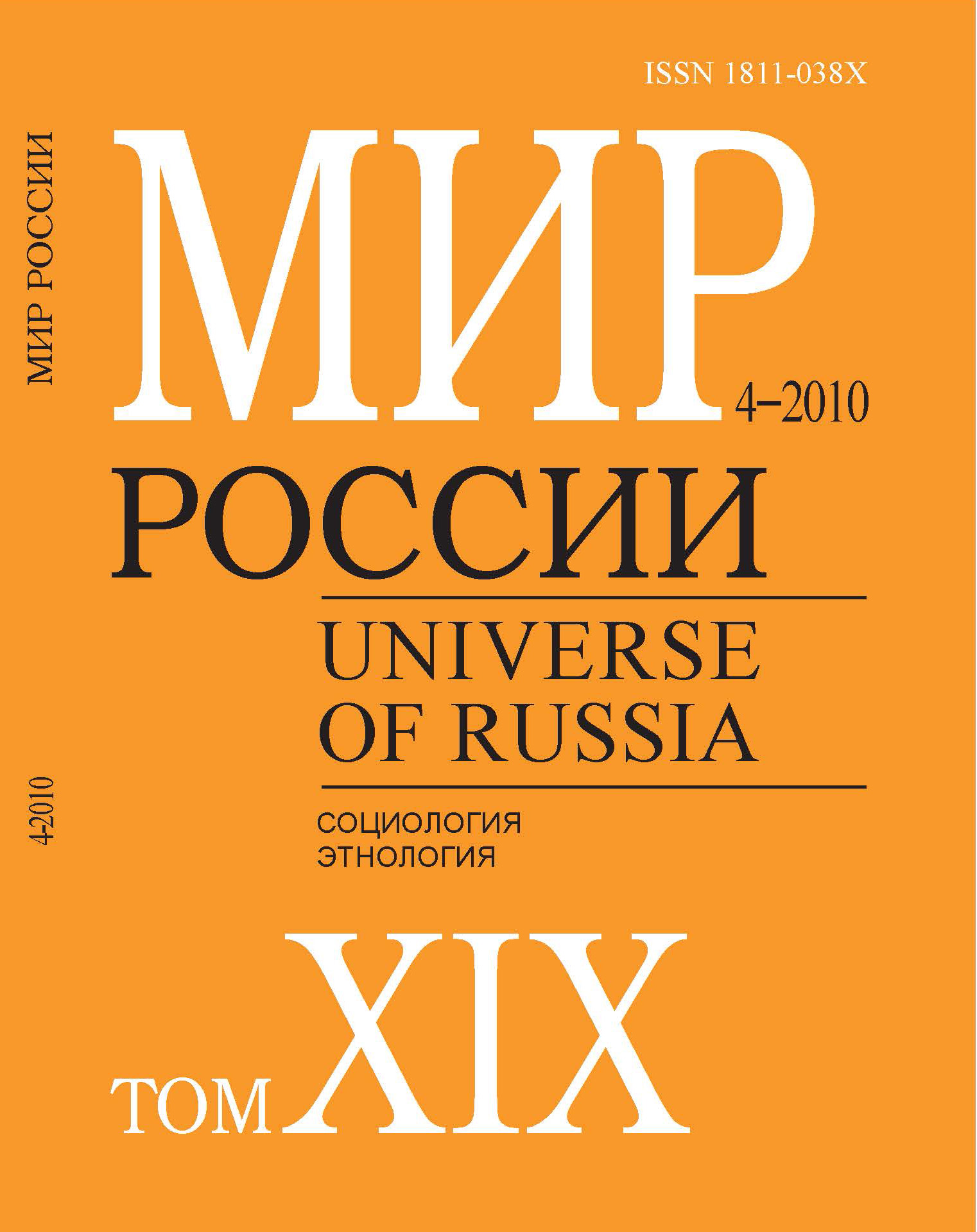The Russian Population in the Light of Another Economic Crisis
Abstract
Marina Krasilnikova — Head of Department, Levada-Center. Address: 17, Nikolskaya St., Moscow, 109012, Russian Federation. E-mail: mdkras@gmail.com
To evaluate the influence of the current economic crisis on the lives of the Russian population, its attitudes and perceptions, one would have to know about the pre-crisis state of Russia’s society. A significant improvement in the well-being, which happened in the 2000s, was nevertheless insufficient to bolster the cardinal changes in the structure of incomes and consumption of the larger part of the population as compared to the last years of the previous century. The years of economic growth preceding the current crisis were been converted into well-being, which would more or less correspond to a true market economy. In spite of gradual improvements, the majority of the population is still rather poor and earns wages which are only enough to satisfy their current basic needs (food and clothing). Economic relations have become so primitive that the economic crisis is evaluated either in the terms of wage cuts, or in terms of the pace of inflation, which ‘eats away’ those wages.
This explains why the world financial crisis was so underestimated in Russia at the beginning. Its particular model of income and consumption dampened the situation, i.e. the majority of people recognized the influence of the worsening economic situation only when their earning opportunities were directly affected. On the other hand, the inflation of prices in consumer markets was a less significant factor in emphasizing the crisis, since both, inflation and expectations, were rather high in a preceding period.
In this paper, the author analyses people’s response to the economic crisis by looking at the data from mass surveys and macroeconomic statistics. The objective is to reveal the extent of rationality of the so-called ‘homo economicus’ in Russia and to demonstrate the forecast abilities of the subjective attitudes of the population with respect to economic changes.
The fears of a new wave of economic crisis (in late-2008) have caused a steep fall in the subjective well-being of Russian households and provoked the corresponding adjustments in consumer behavior. The average consumer reacted rather rationally by cutting their consumption. In the autumn of 2008, high inflation expectations led to a short-term (until the beginning of 2009) increase in demand among only the high-income groups of the population, while the majority of people began to cut their demand in response to the threat of unemployment and wage reductions (along with high inflation expectations). This was an expected response according to CPI (Consumer Price Index) behavior, which started to decrease as early as in the summer of 2008.
Consumer crediting and, precisely, personal loans are another important factor of economic change, which is directly related to people’s choices. At least one third of the households had a loan debt before the crisis, while during the crisis consumer crediting literally collapsed. In half a year, the share of such debtors decreased almost four-fold. In the second half of 2009, the crediting improved slightly, but the process was still rather slow and the balance of positive and negative attitudes towards credited purchases was at about the same level as ten years ago.
The population’s reaction to the current consequences of the economic crisis have been quite sharp, yet adequate at the same time. For now, the fear of unemployment and income reductions accordingly have proved to be groundless: the population has more or less settled down, but it is not yet ready to return to the pre-crisis consumer euphoria. The signs of a rise in consumer optimism, appearing at the beginning of spring 2009, have been too weak to develop any further. The corresponding figures have been quite stable (with the only exception of a short-term rise on New Year’s Eve 2009/2010).
Generally, the crisis period has shown that Russia’s current development model has more or less successfully resisted most economic difficulties as far as the population is concerned. This relative success may be due to the ‘hand mode’ of regulating economy. This could be an additional argument in favor of a ‘slow and gradual’ search for approaches to the solving of long standing problems; or modernization problems, as they are popularly referred to today. But the assignments are still due, even though the authorities have apparently skipped them this time.






